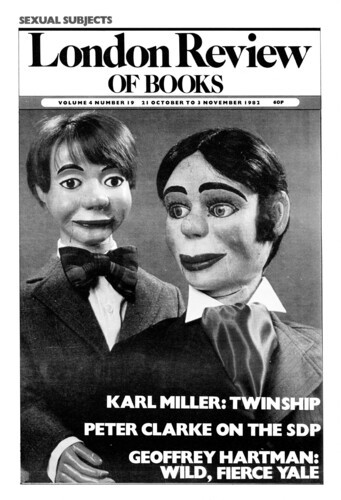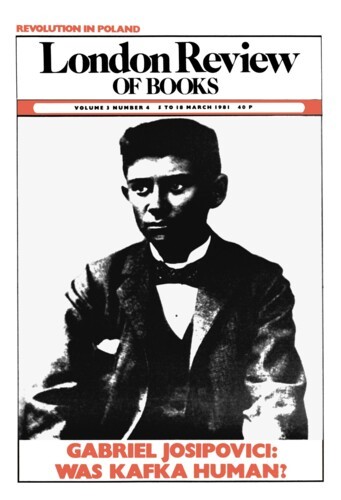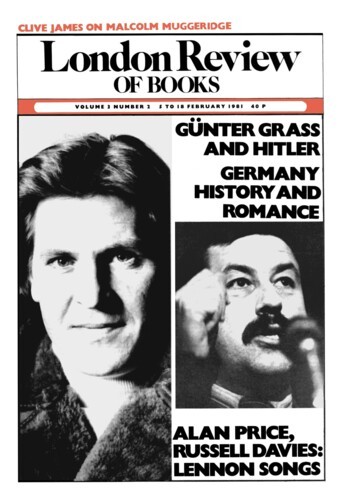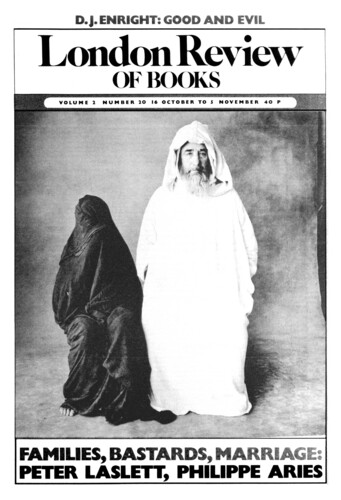Walking in high places
Michael Neve, 21 October 1982
It is time for a change, even in the small world of historical epithets. For ages, philosophers and historians have been haunted by intellectual tags, such as Was ist Aufklärung? There have been a number of distinguished replies to this question of what the Enlightenment consisted in, but its resilience has appeared to be connected to its unanswerability. Indeed, it seemed better practice not to answer it at all, but to leave it hanging, like some family motto for generations of baffled European intellectuals, an MCC tie for the wandering intelligentsia. Similar problems hold for Romanticism. It appears to be something to do with opposition to the Enlightenment, and to do with new emphases placed on individual experience and ‘the Self’. To do with walking in high places, with sudden, untranslatable visions, with the Infinite. The problems of the Enlightenment may be unanswerable, beyond certain remarks about secularism and the march of Reason, but the siting of Romanticism is no less difficult. It may be said that it’s to do with German idealist philosophy, with political art, with opposition to science: but the travelling, conference-attending party is suddenly lost in mist; the sun vanishes, the path is unclear. Perhaps Romanticism is to do with being lost?





